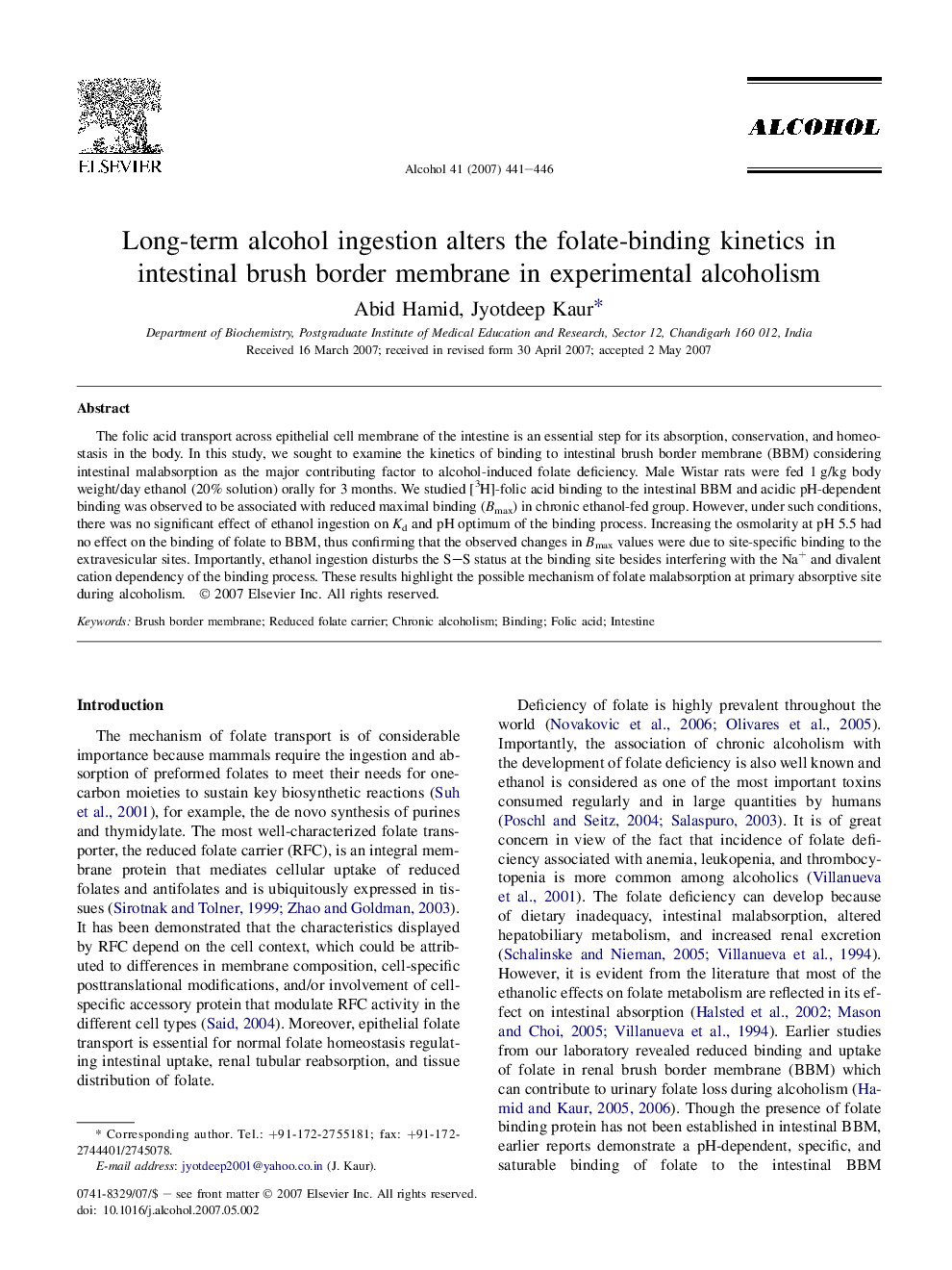| Article ID | Journal | Published Year | Pages | File Type |
|---|---|---|---|---|
| 1067958 | Alcohol | 2007 | 6 Pages |
The folic acid transport across epithelial cell membrane of the intestine is an essential step for its absorption, conservation, and homeostasis in the body. In this study, we sought to examine the kinetics of binding to intestinal brush border membrane (BBM) considering intestinal malabsorption as the major contributing factor to alcohol-induced folate deficiency. Male Wistar rats were fed 1 g/kg body weight/day ethanol (20% solution) orally for 3 months. We studied [3H]-folic acid binding to the intestinal BBM and acidic pH-dependent binding was observed to be associated with reduced maximal binding (Bmax) in chronic ethanol-fed group. However, under such conditions, there was no significant effect of ethanol ingestion on Kd and pH optimum of the binding process. Increasing the osmolarity at pH 5.5 had no effect on the binding of folate to BBM, thus confirming that the observed changes in Bmax values were due to site-specific binding to the extravesicular sites. Importantly, ethanol ingestion disturbs the S–S status at the binding site besides interfering with the Na+ and divalent cation dependency of the binding process. These results highlight the possible mechanism of folate malabsorption at primary absorptive site during alcoholism.
